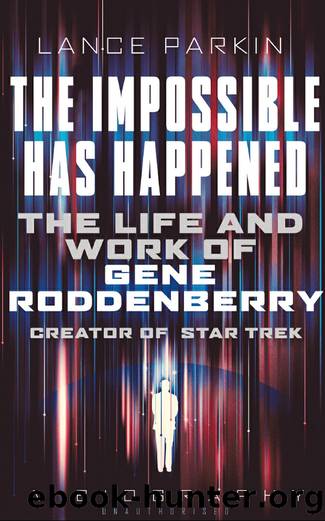The Impossible Has Happened by Lance Parkin

Author:Lance Parkin
Language: eng
Format: epub
Publisher: MBI
Published: 2016-11-15T00:00:00+00:00
LINCOLN: What a charming Negress. Oh, forgive me, my dear. I know in my time some used that term as a description of property.
UHURA: But why should I object to that term, sir? You see, in our century weâve learned not to fear words.
Star Trek portrays a better future, one thatâs better because humanity has learned to celebrate diversity, to work together for the great good. The original series depicts neither the Federation nor the future Earth as a utopian civilization. It doesnât depict Earth at all, except by showing us people who have come from there. Kirkâs is plainly not the perfect society. More than that, it makes no real effort to depict the broader culture. Star Trek is a primetime action adventure serial, not a lecture series on alternative politico-economic systems.
While Roddenberry and others involved with the show talk about episodes that are allegorical, or satirical, thereâs surprisingly little social commentary. We see a number of alien societies and theyâre usually modeled along the lines of some extreme rule or codeâa good example would be âA Taste of Armageddon,â where warfare is ritualized and people trudge dutifully into disintegration booths if the computer simulations demand it. Kirk finds this repugnant, as do we, although itâs hard to explain exactly why it feels even more inhumane than using real bombs and hearing the casualty figures on the evening news. In âThis Side of Paradise,â crew members, including Spock, are infected by spores that make them forget their duty and surrender to blissful hedonism. Itâs a (rather heavy-handed) allegory for drug dependency and, again, almost all of us will side with Kirk as he seeks to free his crew; the story certainly does nothing to challenge the idea that he has chosen the right course of action. In other words the showâs social values are broadly our own.
In places the overt message may be a little more controversial to some sections of the audience. There are religious groups in modern America who might object to Kirkâs offer to supply contraceptive devices to an overpopulated planet in âThe Mark of Gideon.â The portrayal of a pacifist in âThe Savage Curtainâ makes him appear naïve to the point of suicidal stupidity because he seeks a diplomatic solution to a problem. But the most devout Catholics and dedicated pacifists in the audience would probably agree Kirk is espousing normative liberal American values of the 1960s. Thereâs very little to suggest his future Earth has adopted radically different social models. The economic implications of living in a society where machines supply every material need would be immense, but theyâre barely touched upon in the original series.
Itâs ironic that perhaps the most sophisticated examination of utopianism in the original series is in the much-reviled âThe Way to Eden,â which Star Trek fans invariably describe as âthe one with the space hippies.â Itâs interesting because it features a group who have renounced the lifestyle of the United Federation of Planets, an otherwise unchallenged society where self-determination and freedom seem absolute.
Download
This site does not store any files on its server. We only index and link to content provided by other sites. Please contact the content providers to delete copyright contents if any and email us, we'll remove relevant links or contents immediately.
I Have Something to Say by John Bowe(3286)
What Happened to You? by Oprah Winfrey(1476)
Doesn't Hurt to Ask by Trey Gowdy(1402)
Einstein: His Life and Universe by Walter Isaacson(1319)
Solutions and Other Problems by Allie Brosh(1033)
Disloyal: A Memoir by Michael Cohen(1024)
American Dreams by Unknown(860)
Don't Call it a Cult by Sarah Berman(842)
Infinite Circle by Bernie Glassman(831)
Home for the Soul by Sara Bird(813)
Group by Christie Tate(811)
Talk of the Ton by unknow(736)
The Silent Cry by Cathy Glass(684)
Total F*cking Godhead by Corbin Reiff(666)
Severed by John Gilmore(656)
Searching for Family and Traditions at the French Table by Carole Bumpus(650)
The Battle of Mogadishu by Matt Eversmann & Dan Schilling(615)
Before & Laughter by Jimmy Carr(605)
Things I Wish I Knew Before My Mom Died by Ty Alexander(601)
